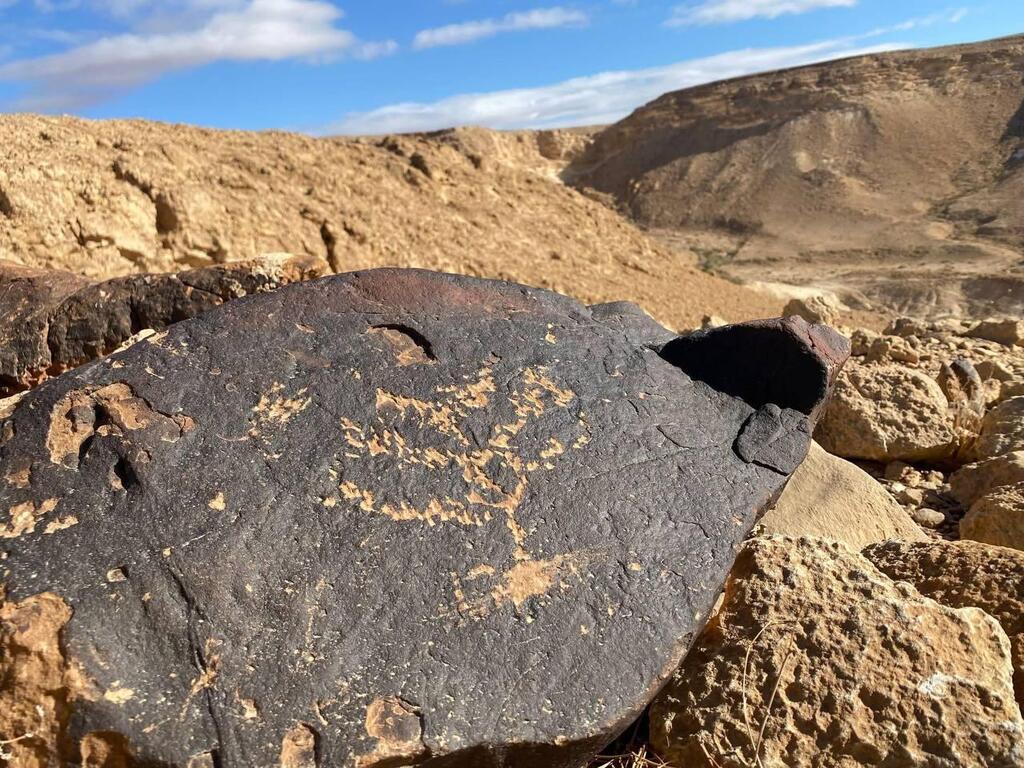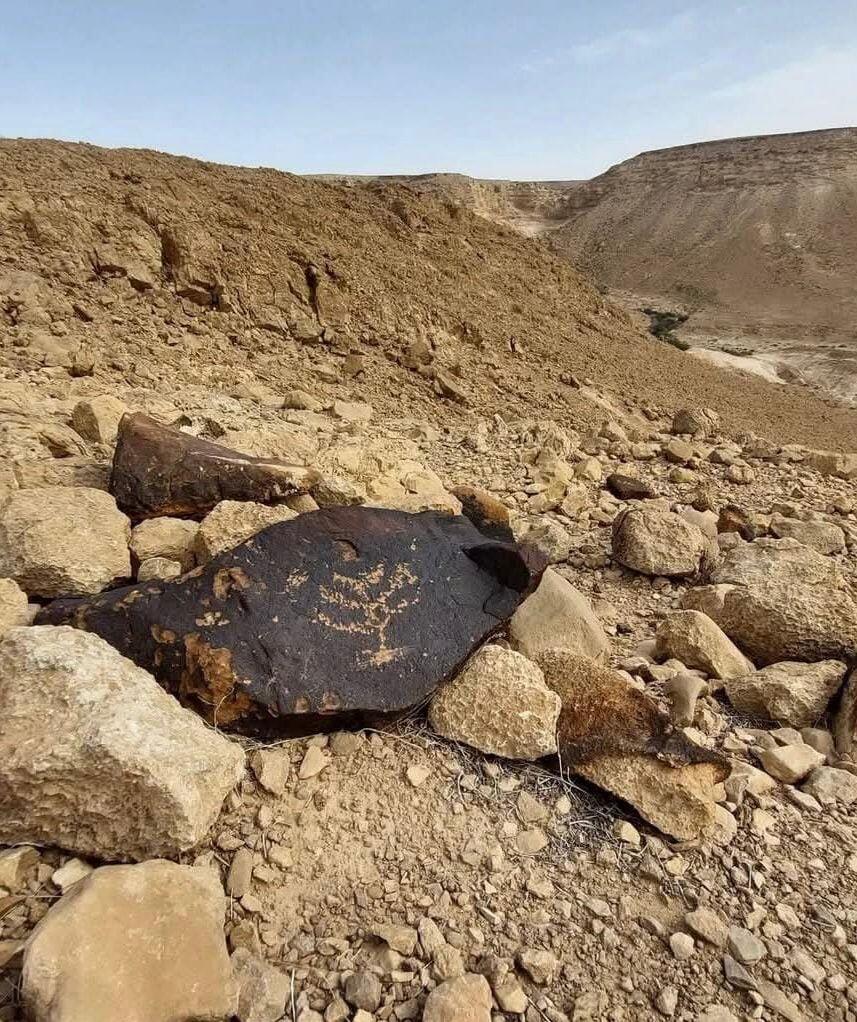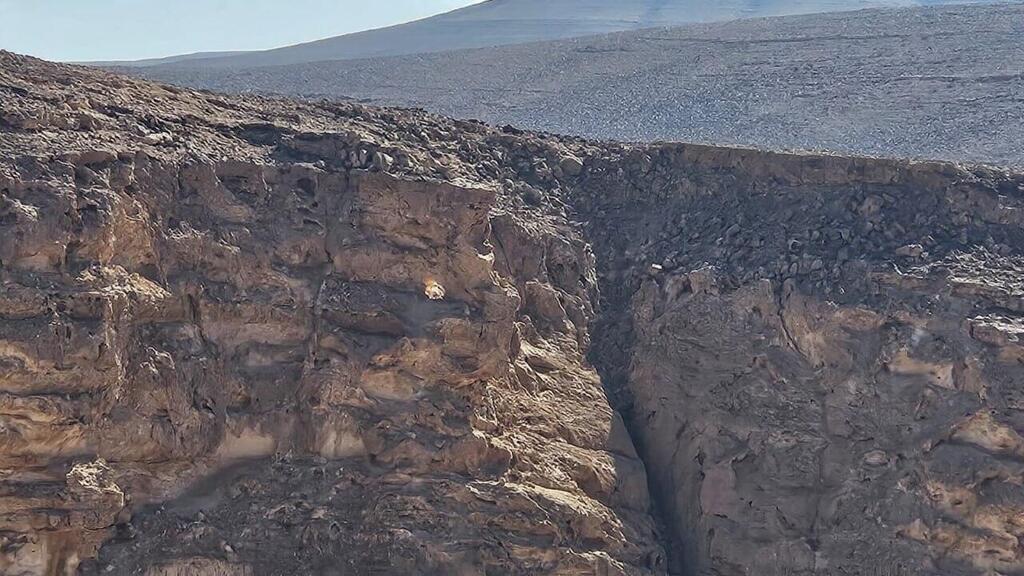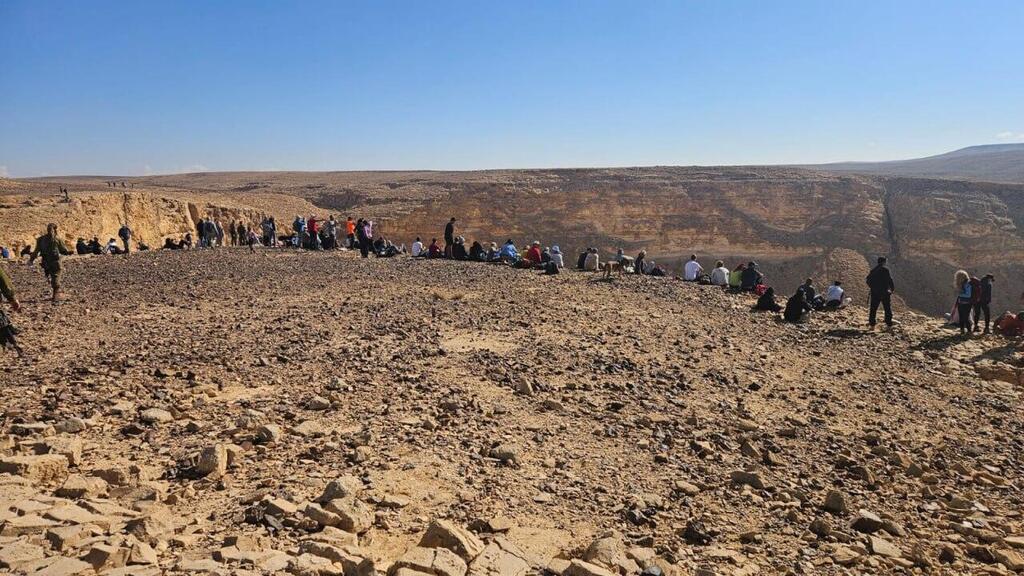Getting your Trinity Audio player ready...
Visitors to Mount Karkom on Saturday were dismayed to discover the ancient rock engraving of a seven-branched menorah had been deliberately defaced.
Officials from the Israel Nature and Parks Authority (INPA) believe the vandalism was intentional, with the menorah’s branches deliberately etched to obscure the carving.
"This appears to have been an act aimed at erasing its form," said Lior Schwimmer, Southern District heritage official for INPA. The menorah is believed to date back to the Byzantine period, providing evidence of Jewish presence in the region during that era. "Someone who clearly disliked the symbol of the menorah did this," added Nadav Silbert, a tour guide and proprietor of BaTeva, Desert Experiences. Silbert called the defacement "a new form of antisemitic threat."
Get the Ynetnews app on your smartphone: Google Play: https://bit.ly/4eJ37pE | Apple App Store: https://bit.ly/3ZL7iNv
Since the start of the Israel-Hamas war on October 7, 2023, Mount Karkom had been closed to visitors until this weekend. Despite the site's reopening, INPA reported that only the menorah engraving among roughly 20,000 ancient rock carvings at the site was damaged. Schwimmer noted that plans are being considered to create a replica of the vandalized engraving for preservation.
The 'burning bush' phenomenon at Mount Karkom
(Video: Ron Peled)
Mount Karkom, considered by some researchers to be the biblical Mount Sinai, has drawn attention for its rare "burning bush" phenomenon, visible only around the shortest day of the year, December 21. This natural optical illusion occurs when low-angle sunlight reflects off crystalline rock inside a small cave, producing a striking glowing effect that resembles flames.
Approximately 700 visitors traveled to Mount Karkom on Saturday to witness the phenomenon, facilitated by the IDF's decision to temporarily open Highway 10 for civilian access. The initiative was part of a collaboration with Negev Mountain Tourism to mark the annual event.









